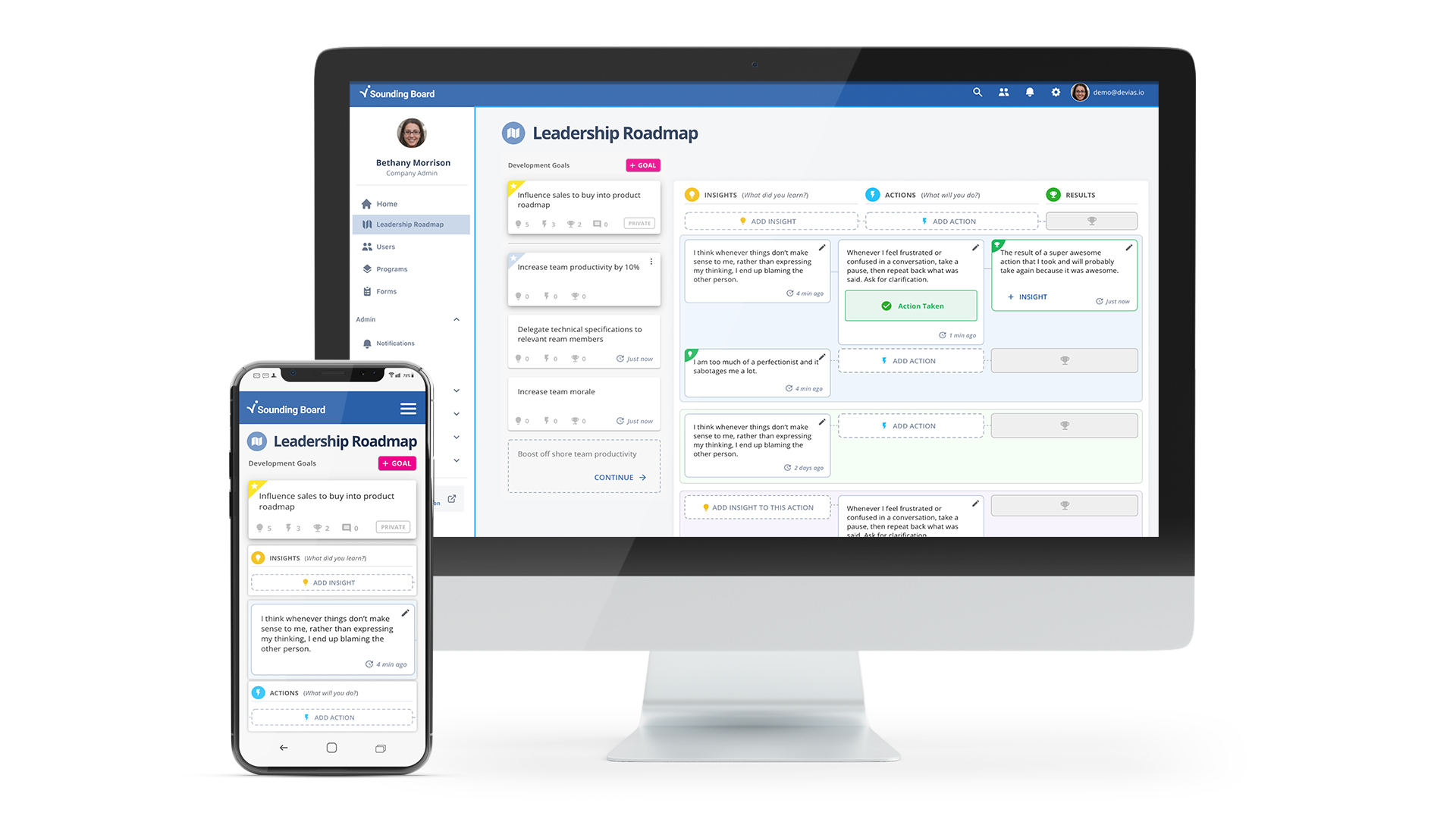Sounding Board, which started as a platform to connect leaders to coaches through a marketplace, realized early in the pandemic that mentorship needs a refresh.
“We’ve always delivered coaching in this traditional services format,” said Christine Tao, Sounding Board CEO and co-founder.” “Well, we’re not in the office anymore so we actually have to speak differently about how we’re developing our talent and our leaders.” The insight led to the launch of a software platform that let users not only connect with coaches, but also track goals on an ongoing basis.

Now, nearly a year after landing a Series A with this vision, Sounding Board has closed a $30 million Series B led by Jazz Venture Partners, and joined by Gaingels as well as angel investors such as theBoardlist’s Sukhinder Singh Cassidy, Ancestry.com’s Deb Liu, Udemy’s Yvonne Chen and Engage VC’s Tammy Aguiloon. Previous investors in the company include Canaan Partner and Precursor Ventures.
The round also saw JAZZ Venture Partners’ John Spinale join the board, an addition to Sounding Boards’ all-female team (and all-female board). ‘The joke is that we actually had to add diversity to our board…a man,” Tao laughed.
The fundraise comes off of solid growth for Sounding Board, which touts that it has had sequential growth for the past seven quarters. While Tao wouldn’t share specifics on revenues, the company said revenue was in the ‘multi-millions’ in the past and annual bookings have increased more than 350% year over year. Looking at stickiness, Sounding Board claims that net revenue retention is over 200%, meaning that existing customers continue to pay for the platform as time goes on.
BetterUp, one of Sounding Board’s largest competitors, has been on a recent acquisition spree that illustrates a similarly shifting focus on the software behind coaching. It bought Motive to help BetterUp clients understand the emotional context behind data that they already aggregate, through engagement surveys or polls. The unicorn also scooped up Impraise, which uses technology to help managers better support their direct reports, through real-time performance reviews and more seamless feedback channels.
Tao thinks BetterUp’s growth has helped elevate the importance of executive training to investors, but still sees room for more leadership-focused services instead of a broad-based coaching tool. Over the last year, the co-founder said she’s seen a lot of solutions that are focused on helping individuals manage their capacity through supporting mental and emotional state (i.e. BetterUp care).
“But alongside that you actually also need to have real skills and capability to be able to manage and effectively communicate,” she said. Sounding Board is more interested in solving for the capability side of executive training, and for now, has no plans to focus on the mental health aspect of it. Of course this could cause competitors to win market share from Sounding Board if they offer both sides in a rich way. For now, Sounding Board’s customers don’t seem to mind.
“If you think about your company’s benefits [with mental health], it’s a bit more hands off… it’s kind of there and then you choose whether or not you opt into it but it’s really meant to be there for employees ” she said. “Whereas I think for capability-building there is this business need, investment they want to mke, and a level of responsibility that they have.”
Sounding Board currently has 100 customers, including Plaid, Chime and Bill.com.

